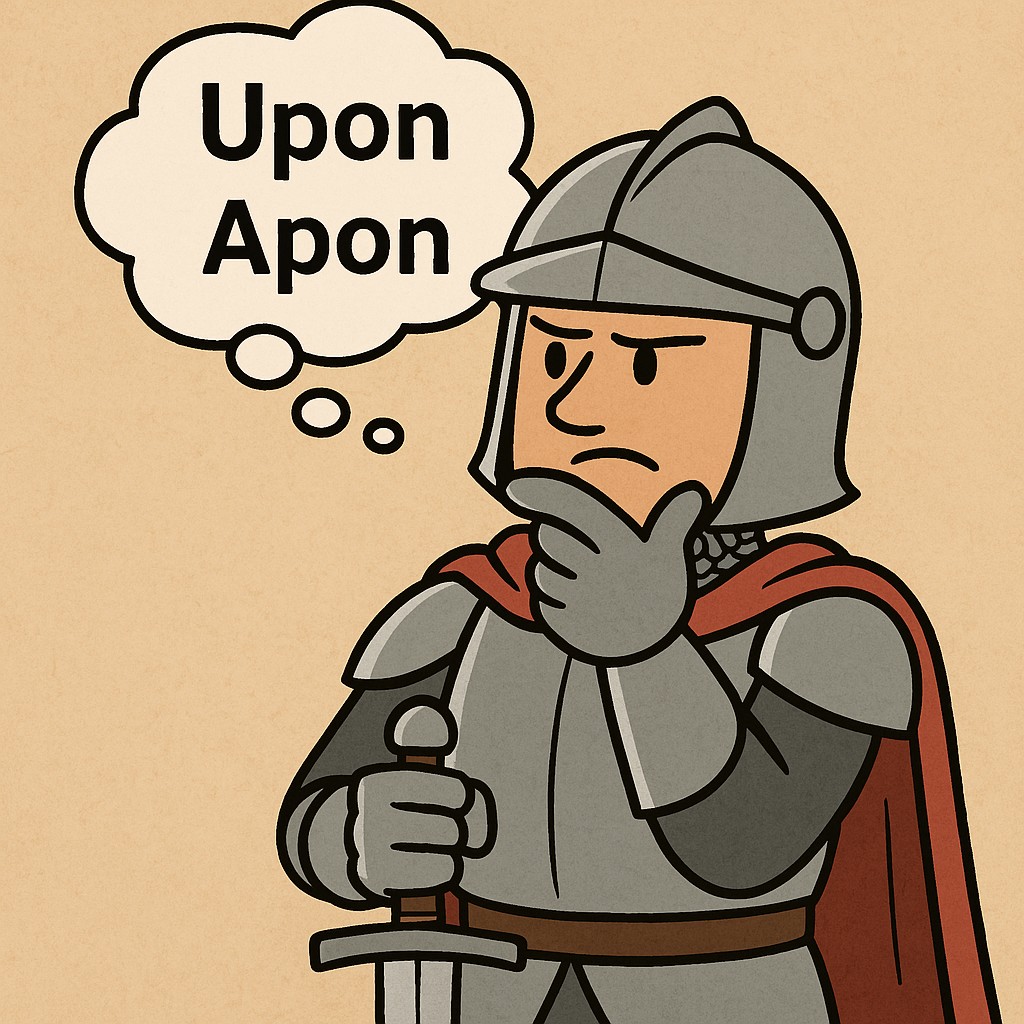Okay, let’s be honest.
Have you ever been furiously typing away at your research paper, crafting an epic sentence that goes something like:
“Once apon a time, researchers discovered…”
And then boom!
Spellcheck throws a red line under “apon.” Cue panic.
Let’s clear this up once and for all because if you’re writing your next essay (or, let’s say, a very enthusiastic TikTok caption about fairy tales and science), you’ll want to get it right.
“Apon” vs. “Upon” — What’s the Deal?
Here’s the simple truth:
- “Upon” is the correct word.
- “Apon” is an outdated, archaic spelling that basically vanished a few centuries ago.
Yup, “apon” was once used back in Middle English times (think knights, scrolls, and feather quills), but unless you’re a time traveler writing Shakespearean fan fiction, stick with upon.
“Upon closer inspection, you’ll see that ‘apon’ belongs in the medieval dictionary.”

So Why Does This Even Matter?
Because details count, my friend — especially when you’re writing essays, doing professional research, or simply showing off your academic flair. A tiny spelling slip like “apon” might seem harmless, but it could make your work look a bit sloppy. (And no one wants that when you’re going for those top grades or impressing your professor.)
Here’s a Pro Tip: Let Seamless Do the Heavy Lifting
Now, let’s say you’re writing a paper about the evolution of the English language, or you’re crafting a quirky article about archaic spellings (like this one). You don’t want to spend hours digging through old dusty grammar books to find the perfect quote.
Enter Seamless (seaml.es) — your AI-powered study buddy.
With Seamless, you can:
- Find legit quotations from academic papers on literally any topic. Yep, even “apon vs. upon.”
- Use their AI citation for essay finder to pull accurate, ready-to-go references for your work.
- And hey, while you’re at it, listen to their science AI podcasts to keep your brain buzzing with cool facts.
Whether it’s a heavy-duty research project or a lighthearted exploration of trivial spellings, Seamless saves you from rabbit holes and gets you straight to the good stuff.
Final Verdict:
Correct spelling: Upon
Retired to the history books: Apon
Now, go forth and write upon your next masterpiece!
An example of a Literature Review with citations:
Upon investigating the correct spelling variations of the word “upon,” several relevant papers shed light on various aspects of linguistics and language analysis.
A study by Anan et al. [5] delves into BanglaSarc, a dataset designed for sarcasm detection in Bangla textual data, demonstrating the importance of context and language specificity in detecting nuances like sarcasm. On the other hand, the work of Hogg [7] explores phonology and morphology, illustrating the evolution of language over time, which can impact the way specific words are spelled and used.
Furthermore, Dore [4] provides a review on translating irony between English and Arabic, emphasizing the challenges and nuances of language translation, including maintaining the intended meaning and humor across different languages.
Moreover, Chen et al. [10] examine linguistic correlates of societal variation, highlighting the influence of societal features on language complexity and structure. This study underscores the intricate relationship between language and society, which can also manifest in variations of word usage and spelling conventions.
Lastly, V. Mandarani [6] conducts a detailed analysis of Trump’s speech concerning the Soleimani assassination, focusing on the grammar and lexical cohesion employed. This research underscores how language can be wielded to shape narratives and convey specific meanings through subtle linguistic choices.
In summary, the investigation into the spellings of “apon” versus “upon” intertwines with a broader exploration of language nuances, societal influences on language, translation challenges, and the strategic use of language in various contexts.